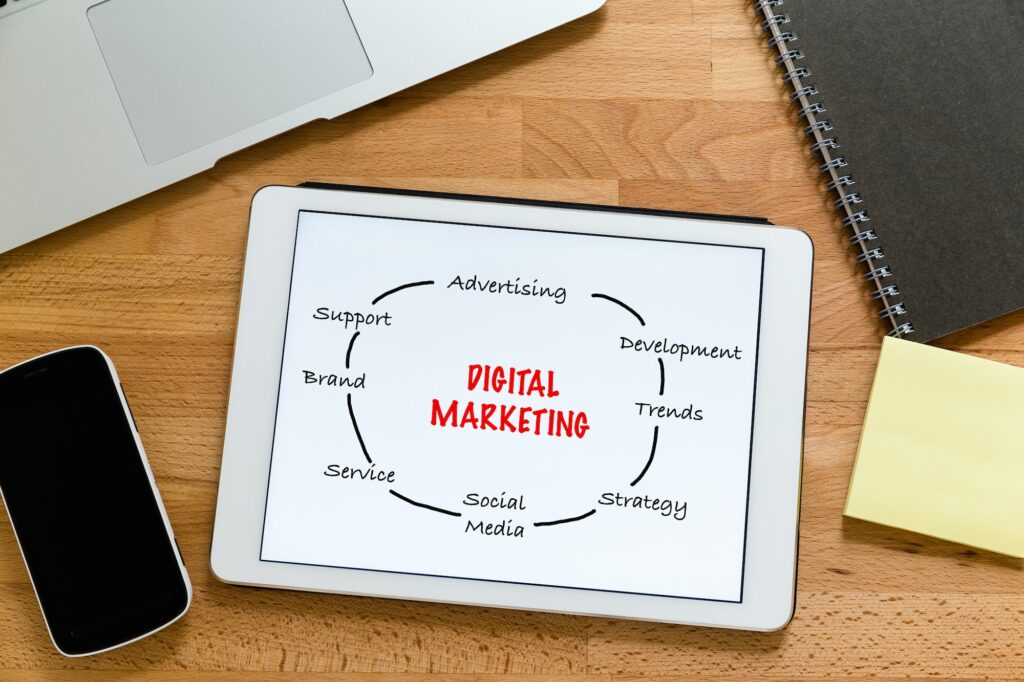10 Essential Components for a Successful Digital Marketing Campaign
Digital marketing has become an essential aspect of business growth in the modern era. With the increasing shift towards online platforms, it is crucial for businesses to have a strong online presence to reach their target audience effectively. A successful digital marketing campaign involves a combination of different strategies, each with its unique benefits and purposes. In this blog post, we will explore the different components of a successful digital marketing campaign, including SEO and PPC.
SEO (Search Engine Optimization)
SEO is the process of optimizing a website’s content and structure to rank higher in search engine results pages (SERPs) for specific keywords and phrases. The higher the ranking, the more likely a website is to attract organic traffic, which refers to visitors who find the website through search engines. SEO involves several techniques, including keyword research, on-page optimization, link building, and content creation. By implementing these strategies, businesses can improve their online visibility and attract more potential customers.
PPC (Pay-Per-Click)
PPC is a form of online advertising in which advertisers pay each time a user clicks on their ad. PPC ads appear on search engine results pages, social media platforms, and other websites. Unlike SEO, which focuses on organic traffic, PPC is a paid strategy that aims to attract immediate traffic and generate leads. The primary advantage of PPC is its ability to target specific audiences based on demographics, interests, and behavior. This targeted approach can lead to a higher conversion rate and a better return on investment (ROI).
Content Marketing
Content marketing involves creating and sharing valuable, relevant, and consistent content to attract and retain a target audience. Content can come in many forms, including blog posts, social media posts, videos, podcasts, and infographics. The goal of content marketing is to build brand awareness, establish authority and credibility, and generate leads. By providing helpful and informative content, businesses can establish themselves as industry experts and build trust with their audience.
Social Media Marketing
Social media marketing involves using social media platforms to promote products, services, and content. Social media platforms, such as Facebook, Instagram, Twitter, and LinkedIn, have millions of active users, making them an excellent platform for businesses to reach their target audience. Social media marketing involves creating and sharing engaging content, interacting with followers, and running paid advertising campaigns.
Email Marketing
Email marketing involves sending promotional and informative messages to a list of subscribers. Email marketing is a cost-effective way to reach a large audience and build relationships with potential and existing customers. The key to successful email marketing is to create personalized and relevant content that resonates with the audience.
A successful digital marketing campaign involves a combination of different strategies, including SEO, PPC, content marketing, social media marketing, and email marketing. Each strategy has its unique benefits and purposes, and businesses should choose the strategies that align with their goals and target audience. By implementing these strategies effectively, businesses can improve their online visibility, attract more potential customers, and grow their business.
Web design and development are essential components of a successful digital marketing campaign. A well-designed and optimized website can improve user experience, increase engagement, and ultimately generate leads and sales. A website should be visually appealing, easy to navigate, and optimized for search engines. Additionally, it should be responsive, meaning it can adapt to different screen sizes and devices, ensuring that it is accessible to all users.

Analytics and Reporting
Analytics and reporting are critical components of a successful digital marketing campaign. By monitoring website traffic, user behavior, and other metrics, businesses can gain insights into their audience and their campaign’s effectiveness. Analytics tools, such as Google Analytics, can provide valuable information, such as the number of visitors, bounce rates, and conversion rates. This data can help businesses make informed decisions and improve their marketing strategies.
Conversion Rate Optimization (CRO)
Conversion rate optimization (CRO) involves optimizing a website or landing page to increase the number of conversions, such as form submissions, purchases, or phone calls. CRO involves analyzing user behavior, identifying areas of improvement, and testing different variations to determine what works best. By improving the conversion rate, businesses can generate more leads and sales and maximize their ROI.
Mobile Marketing
Mobile marketing involves targeting users on mobile devices, such as smartphones and tablets. With the increasing use of mobile devices, it is essential for businesses to have a mobile-friendly website and mobile marketing strategy. Mobile marketing can involve strategies such as mobile-friendly ads, location-based marketing, and SMS marketing.ChatGPT
Web Design and Development: Web design and development are essential components of a successful digital marketing campaign. A well-designed and optimized website can improve user experience, increase engagement, and ultimately generate leads and sales. A website should be visually appealing, easy to navigate, and optimized for search engines. Additionally, it should be responsive, meaning it can adapt to different screen sizes and devices, ensuring that it is accessible to all users.
Analytics and Reporting
Analytics and reporting are critical components of a successful digital marketing campaign. By monitoring website traffic, user behavior, and other metrics, businesses can gain insights into their audience and their campaign’s effectiveness. Analytics tools, such as Google Analytics, can provide valuable information, such as the number of visitors, bounce rates, and conversion rates. This data can help businesses make informed decisions and improve their marketing strategies.
In conclusion, a successful digital marketing campaign involves a range of components, each with its unique benefits and purposes. By understanding and implementing these strategies effectively, businesses can improve their online visibility, attract more potential customers, and grow their business. With the ever-changing digital landscape, it is crucial for businesses to stay up to date with the latest trends and techniques to remain competitive in their industry. By integrating these components into their digital marketing efforts, businesses can create a comprehensive and effective strategy that drives results and helps them achieve their goals.


